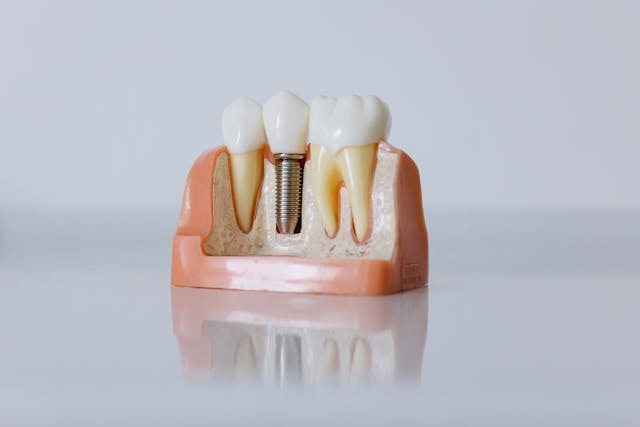Introduction
If you’re considering dental implants, one material may better suit your needs than the other: zirconia or titanium. Zirconia implants are known for their natural tooth-like appearance and are a popular choice for those concerned about aesthetics. They’re also biocompatible, meaning they’re unlikely to cause any adverse reactions.
On the other hand, titanium implants have been widely used for years due to their durability and strength. They’ve a high success rate and are often recommended for patients with healthy jawbones.
Both materials have advantages and disadvantages, so it’s essential to consult with your dentist to determine which option best suits your specific dental needs and preferences.
Zirconia Implants
When considering dental implant options, you frequently hear about the benefits of zirconia implants. Zirconia implants are known for being biocompatible, which means they’re well-tolerated by the body and less likely to cause adverse reactions. These implants are also highly resistant to corrosion, providing a long-lasting solution for your dental needs.
Zirconia implants have a tooth-like color and translucency, making them a popular choice for those concerned about aesthetics. Additionally, zirconia implants are hypoallergenic, making them suitable for individuals with metal allergies. With their durability and natural look, zirconia implants offer a promising alternative to traditional titanium implants, especially for those looking for a more aesthetically pleasing option for their smile.
Titanium Implants
When considering dental implants in dubai, one key advantage of titanium implants is their proven track record of over 50 years in successful clinical use. Titanium implants are known for their durability and biocompatibility, making them a popular choice for many patients. These implants have a high success rate and can integrate well with the jawbone, providing a stable foundation for replacing teeth.
Additionally, titanium implants are lightweight and strong, offering reliable support for chewing and speaking. Another benefit is their long-term reliability, with many patients enjoying their titanium implants for decades without issues. Overall, titanium implants are a trusted option for those seeking a reliable, long-lasting solution for missing teeth.
Comparison of Clinical Performance
Considering the options between zirconia and titanium implants, evaluating their respective clinical performances is essential.
Titanium implants have been extensively used for years and are well-documented for their high success rates in various clinical studies. They exhibit excellent osseointegration, providing strong support for dental prosthetics.
On the other hand, zirconia implants are gaining popularity due to their tooth-colored appearance and biocompatibility. While zirconia implants may be more aesthetically pleasing, some studies suggest they could have a slightly higher risk of technical complications than titanium implants.
Ultimately, the choice between zirconia and titanium implants should be based on a thorough discussion with your dentist, considering factors such as your oral health, aesthetic preferences, and long-term expectations.
Conclusion
Before you decide, consider all aspects of zirconia and titanium implants to make an informed choice.
Both zirconia and titanium implants have their unique benefits and drawbacks. Zirconia implants are aesthetically pleasing, biocompatible, and corrosion-resistant but may be prone to fracture.
On the other hand, titanium implants are known for their strength, durability, and successful long-term outcomes, yet some individuals may have concerns about potential allergic reactions or galvanic effects.
Ultimately, your choice between zirconia and titanium implants should be based on your specific needs, preferences, and the advice of your dental professional. Discuss all options thoroughly with your dentist to determine which type of implant best fits you.






